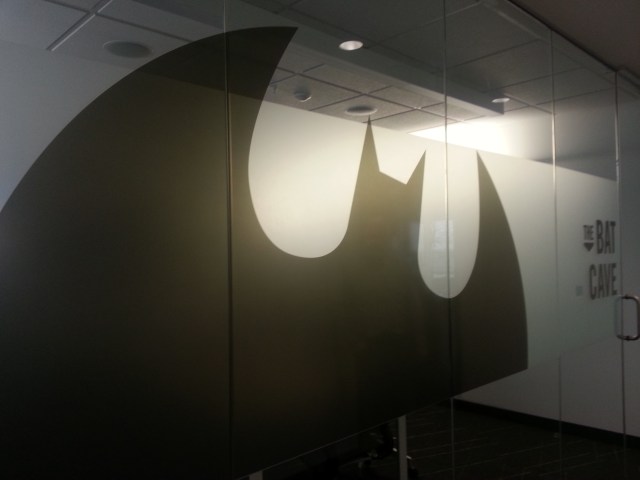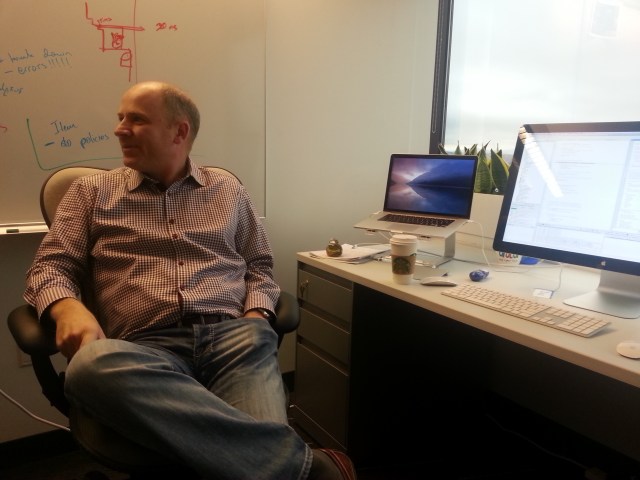New Relic has some pretty sweet digs in my hometown of Portland, high above the city on the 28th floor of the US Bank Tower. Couches are in the corners for engineers to chat and share ideas. Lacquered, clear-stained tree stumps are set up in another corner, looking over the Willamette River. The office has bike racks galore and a stand-up desk bar that it calls "standlandia." And in a side office, sits CEO Lew Cirne talking about the investment his company is making here and how he sees it as part of the plan to become a billion-dollar company.
I had talked to Cirne the week before to learn about the $80 million that New Relic had raised for its immensely popular service for monitoring apps. It is a company of developers, developing developer tools. But the more we conversed in his office, I thought of the paradox of New Relic in the new enterprise, craft beer and dudes with big beards singing country songs in karaoke bars in this quirky yet old-fashioned city.
The ironies make sense — especially the Steampunk attitude of this Portland town. Big timber is a cultural icon of a time long past when dudes with big beards actually did work in logging camps. The Pearl District, that gleaming neighborhood of brushed steel and blonde wood, once did have a brewery. Blitz-Weinhard, bought by the Miller Brewing company, shut down back in the 1990s, opening the Northwest part of the city to development, which subsequently boomed and now has startups vying for space. Wieden and Kennedy, one of the first to settle in the Pearl, now has a corner space of its building dedicated to the Portland Incubator Experiment (PIE), where startups get mentored and launched.
And then there is the question of New Relic, a company that has smacked down the big bucks for 19,000 square feet for some of the most prime office space in town. It looks down on the hippest neighborhoods of the city where the craft craze comes in beer, whiskey and bikes with big wheels that kids with homemade haircuts ride to their gigs where they have a style that is all about the rise of a community steeped deep in independence.
New Relic is quirky and very geeky in its own right. Meeting rooms have superhero names and their imagery stenciled on the glass.
But as much as Portland is a hipster haven, it is also a town where the natives have deep roots in the waters, woods and orchards that once dotted the neighborhoods outside the downtown core. And I think Cirne sensed that when he so excitedly told the news to the local media of the company's decision to make Portland its R&D center. He came out of it wondering why the hesitancy, the guarded wariness of a San Francisco company coming into town. I see it as Portland still in many ways very old-fashioned, a place where the natural resources still have a big part to play. It has railroads and the Port of Portland with its marine terminals that export the most wheat in the United States and third most in the world.
And there are other companies that have extolled the virtues of Portland only to eventually get sold and leave. Ironically, that's exactly what happened to US Bank in 1997 when it was one of a number of regional banks to get acquired. The headquarters is now in Minneapolis.
But Cirne promises New Relic is different. He says it is a company with Portland sensibilities, committed to being sustainable for the long-term. About 75 percent of its development team is in Portland as is most of the support team. The company plans to increase head count this year by 80 percent.
"We are a product-driven company," Cirne said in a follow-up interview. "Portland is our nerve center for R&D."
New Relic has the potential. It is set to totally upend the monitoring space, which is still the domain of companies like HP. It's part of that class of services that are weaving in and out of the massive data plane we know as the "cloud," that amorphic, fluid, infinite space and the haven of tens of thousands of developers, all finding any way they can to make that app work. But New Relic, like AppDynamics, also in the space, are upstarts of their own, awkward in their own right in the big, time-has-passed-us world of the enterprise. They represent the future of application development, but they are still outsiders to the enterprise culture.
Data will usher in the billions Cirne sees coming for the company, which collects billions of interactions that Cirne sees helping developers make better decisions by seeing things they could not before.
The question: How long will it take the enterprise space to implode and can New Relic emerge as a winner?
In the meantime, I'd say don't question Cirne about its place in Portland. New Relic is here to stay. It will just take the company some time to become part of this quirky town on the banks of the Willamette River.


No hay comentarios:
Publicar un comentario